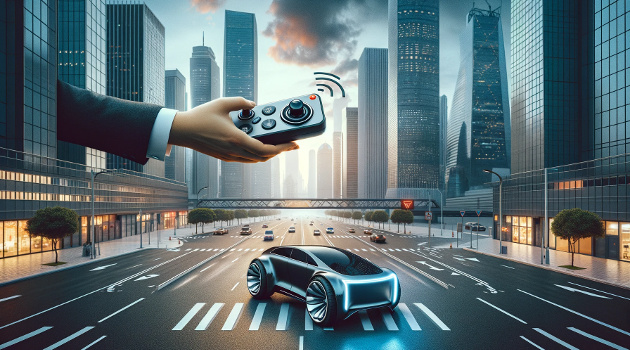People with libertarian sympathies worry about “slippery slopes.”
To elaborate, if you give government a little bit of power, we fear it will just be a matter of time before politicians and bureaucrats figure out how to expand and abuse that authority.
For instance, look at how the simple and modest income tax that was adopted in 1913 has morphed into a complicated and punitive nightmare (which helps to explain my fanatical opposition to doubling down on the problem with a value-added tax).
Today, let’s look at a new power being sought by the crowd in Washington.
They want a “kill switch” for our cars.
I’m not joking, Here’s some of what Jon Miltimore wrote for the American Institute for Economic Research.
Like most Americans, I had never heard of this alleged “kill switch” until a few days ago when Representative Thomas Massie, a libertarian-leaning Republican, proposed to strip the mandate’s funding. …The claim that the feds would mandate that every new motor vehicle include technology that could disable the vehicle seemed ludicrous. So I started Googling. To my relief, I saw several fact-checkers at legacy institutions had determined the “kill switch” mandate was not true. …Unfortunately, my relief evaporated once I looked at the bill itself. Sec. 24220 of the law explicitly states: “[T]o ensure the prevention of alcohol-impaired driving fatalities, advanced drunk and impaired driving prevention technology must be standard equipment in all new passenger motor vehicles.” The legislation then goes on to define the technology as a computer system that can “passively monitor the performance of a driver of a motor vehicle” and can “prevent or limit motor vehicle operation if an impairment is detected” …the law’s language could not be more clear: New motor vehicles must have a computer system to “monitor” drivers, and the system must be able to prevent vehicle operation if it detects impairment.
Clyde Wayne Crews of the Competitive Enterprise Institute analyzed the proposal and specifically warned that a power granted for a good reason (fighting drunk driving) inevitably would be used for other reasons.
The ability to remotely disable a vehicle is not new, of course. Long used in theft prevention, you can buy disabling gear on Amazon yourself. The question is over who performs a remote shutoff of a car, and when it happens. The new vehicle kill switch accelerates government regulation down a sorry new road, with bureaucrats and authorities soon capable of clicking and swiping from afar to strand you. The rationale this time—there’s always a rationale for regulatory overreach—is to combat drunk driving. …To believe newly enabled kill-switch technology will be confined to combatting drunk driving is to pay no sober attention to the proclivities of modern helicopter government. Since no one stopped the kill switch, various agencies can be expected to readily involve themselves in remote enforcement of speed restrictions, no drive zones, emissions monitoring, vehicle sidelining when emergency vehicles pass, preventing startup if the seatbelt isn’t clicked, and the like. …What might an EPA drunk on Green New Deal absinthe do with rooftop-mounted carbon-footprint monitors, or a capability to override commercial building water and energy usage and thermostat settings? Would tomorrow’s EPA have interest in remotely countermanding people’s smart home preferences? You know the answer.
Yes, indeed, we know the answer.
Giving government more power is a very dangerous proposition if you care about economic growth and personal freedom.
Kudos to Congressman Massie for working to block this pernicious idea.
And shame on the 19 Republicans in the House of Representatives who voted to kill his amendment (and shame on the Republicans Senators and Representatives who voted for Biden’s pork-filled Transportation bill in the first place).




